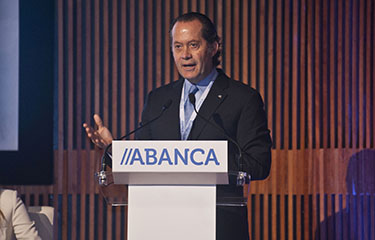A desire to see Pescanova remain based in Galicia, Spain, has the vertically integrated seafood company’s owner, Abanca, leaning toward Iberconsa in its ongoing sales process.
Abanca, which owns nearly 98 percent of Pescanova, is facing heavy pressure to sell at least a majority stake in Pescanova as it faces a looming deadline to reduce its debtload. Vigo, Spain-based Iberconsa, which was acquired by Platinum Equity in 2019, was previously reported to be out of the bidding, with Red Chamber and Cooke dueling over the acquisition, but El Faro de Vigo said Platinum Equity is now considered Abanca’s preferred option.
In the fiscal year ending 30 September, 2022, Pescanova recorded earnings before interest, taxes, depreciation, and amortization (EBITDA) of EUR 20 million (USD 21.7 million), down from EUR 80 million (USD 86.8 million) in 2021, and its operating profit dropped from EUR 70 million (USD 75.9 million) in 2021 to EUR 40 million (USD 43.4 million) last year. The lower numbers will hurt Pescanova’s valuation, the newspaper reported, estimating a sale price in the range of EUR 350 million (USD 380 million), not counting net corporate debt. Pescanova, combined with Iberconsa, which Platinum Equity purchased for EUR 512 million (USD 555 million), would have annual sales surpassing EUR 1.4 billion (USD 1.5 billion) and operate more than 100 fishing vessels globally.
However, Pescanova is currently carrying a very high debt, as it is listed by Abanca as having liabilities valued at EUR 726 million (USD 787.3 million), or EUR 632.7 million (USD 686.1 million) at amortized cost, according to El Faro de Vigo. If Abanca reduces its ownership of Pescanova below 50 percent, it would allow for the removal of its liabilities from Abanca’s balance sheet. Abanca is facing additional pressure to sell from Spain’s banking regulator and the European Central Bank, which discourage the banks they regulate from long-term ownership in industrial holdings.
Abanca, which is seeking an offer of EUR 200 million (USD 216.9 million) in equity and EUR 500 million (USD 542.2 million) in assumption of liabilities, has thus far not received an offer above EUR 150 million (USD 162.7 million), according to El Confidencial. The newspaper reported Abanca expects an improved offer from one of the three leading bidders and that subsequent due diligence will take around three months to complete.
To sweeten the deal, Abanca has offered a flexible financing structure and a loan of up to EUR 250 million (USD 271.1 million) in exchange for a commitment to purchase 100 percent of Pescanova. The offer came after Banco Santander, Pescanova’s primary short-term creditor, refused to extend its EUR 150 million loan, which subsequently expired 23 March.
Iberconsa’s bid could be helped by the Spanish government, led by Spain Prime Minister Pedro Sánchez and his Spanish Socialist Workers’ Party (PSOE). To steer a sale in Iberconsa’s favor, Sánchez may invoke a law giving his government special powers to protect key national industries from being taken over by foreign interests, according to Economia Digital Galicia.
However, Iberconsa’s own EBITDA dropping from EUR 70 million in 2021 to EUR 40 million in 2022 has hurt the company’s ability to compete with Red Chamber and Cooke, and it would face higher costs in resolving its overlaps with Pescanova in Argentina and Namibia, where both companies currently operate.
According to El Confidencial, Platinum Equity’s leadership team have met in Madrid, Spain in recent days in a trip related to the deal, and Iberconsa General Director Alberto Encinas and the company’s CEO, Alberto Freire, are both deeply involved as well. It’s unclear if Platinum, which has USD 33.4 billion (EUR 30.8 billion) in assets under management, will contribute any additional funding to the deal.
Separately, the former president of Pescanova, Manuel Fernández de Sousa, had his appeal of a six-year jail sentence rejected by Spain’s Supreme Court on 29 March. Fernández de Sousa was convicted in February 2023 of falsifying financial accounts and illegal seizure of property in relation to Pescanova’s bankruptcy, and besides his jail term, will be forced to pay EUR 125 million (USD 135.5 million) in compensation to parties injured by his crimes. Eleven other former Pescanova executives were also found guilty and face jail sentences of between six months and more than three years. Seven former Pescanova executives were acquitted.
In February, the company’s auditor, BDO Auditores, was found not to be criminally responsible in a case related to the bankruptcy, in which it was accused of not discovering the fraudulent behavior.
Photo courtesy of Abanca







